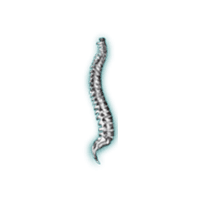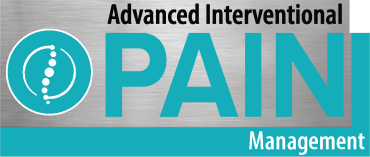
Advanced Interventional Pain Management
Interventional Pain Management Specialists located in Hot Springs, AR & Little Rock, AR
Conditions that cause back pain are often acute injuries that heal successfully with the right treatment, but they can sometimes be life-altering problems for which there’s no cure. If you’re living with persistent or severe back pain, experienced physicians Jacob Abraham, MD, and Ryan Stuckey, MD, of Advanced Interventional Pain Management can help. The practice, with offices in Hot Springs, Little Rock, Texarkana, El Dorado, Arkadelphia, and Mena, Arkansas, provides a range of advanced treatments that can relieve your back pain even when it’s incurable. Call the office nearest you today for more information or book your appointment online.
Back Pain Q & A
Why do I have back pain?
Back pain is often caused by acute injuries. Pulling or tearing a muscle or any of the connective tissues in your back is a common cause of back pain. It’s the kind of injury you can get from moving awkwardly, overexertion, or lifting using the wrong technique.
Sports injuries, falls, and other types of trauma can also damage the structures in your spine and cause acute back pain. Not looking after your spine can make back pain more likely; having poor posture or sitting slumped over puts excess strain on your back.
Congenital diseases, ones you’re born with, sometimes cause back pain. Scoliosis, for example, causes your spine to curve sideways instead of forming a straight vertical line.
One of the most likely reasons for developing chronic back pain is having a degenerative disease.
How do degenerative diseases cause back pain?
An unfortunate consequence of the aging process is that the bones, discs, and soft tissues in your spine deteriorate. Facet joint arthritis develops when the small joints linking your vertebrae wear down and start rubbing together, causing inflammation and pain.
Arthritis can lead to bone spurs developing on your spine. Degenerative disc disease causes a gradual drying out and flattening of the spongy discs in between your vertebrae. Osteoporosis causes the vertebrae to weaken and crumble.
These conditions can lead to problems like narrowing of the spine (spinal stenosis), herniated discs, and compression fractures. A common outcome of spinal problems is radiculopathy, where pressure on the spinal nerves causes pain and other unpleasant sensations.
How is back pain treated?
The Advanced Interventional Pain Management team prepares an individual treatment approach for your back pain based on your condition, your general age and health, and your requirements.
Treatments in your plan could include:
- Activity modification
- Physical therapies
- Painkilling medications
- Anti-inflammatories
If your condition doesn’t respond to these noninvasive options, your provider can administer a range of injectable treatments, including:
- Epidural steroid injections
- Facet joint injections
- Medial branch nerve blocks
- Sympathetic blocks
- Sacroiliac joint injections
These injections contain an anesthetic to numb your pain and powerful anti-inflammatory steroid medication. Your provider uses image guidance technologies to deliver the medication to precisely the right location in your spine.
What advanced treatment options are available for back pain?
If you’re not experiencing relief of your symptoms despite these measures, you might benefit from one of the advanced treatment options at Advanced Interventional Pain Management:
Radiofrequency ablation
This minimally invasive procedure uses radiofrequency energy to heat the nerve that’s sending pain signals to your brain. The heat causes a lesion that interferes with the nerve’s ability to transmit messages, resulting in a reduction of pain.
Spinal cord stimulation
A spinal cord stimulator is a unit that your provider implants under your skin, where it sends electrical impulses to the affected nerves. The impulses prevent pain messages from reaching your brain. You control the power and frequency of the impulses using a hand-held device.
Spinal cord stimulator implantation is a minimally invasive procedure, but the implantation is permanent. Therefore, if you and your provider think spinal cord stimulation could be helpful, you undergo a trial phase to make sure the treatment is effective.
For more information about these and other treatments for back pain, call Advanced Interventional Pain Management today or book an appointment online.
